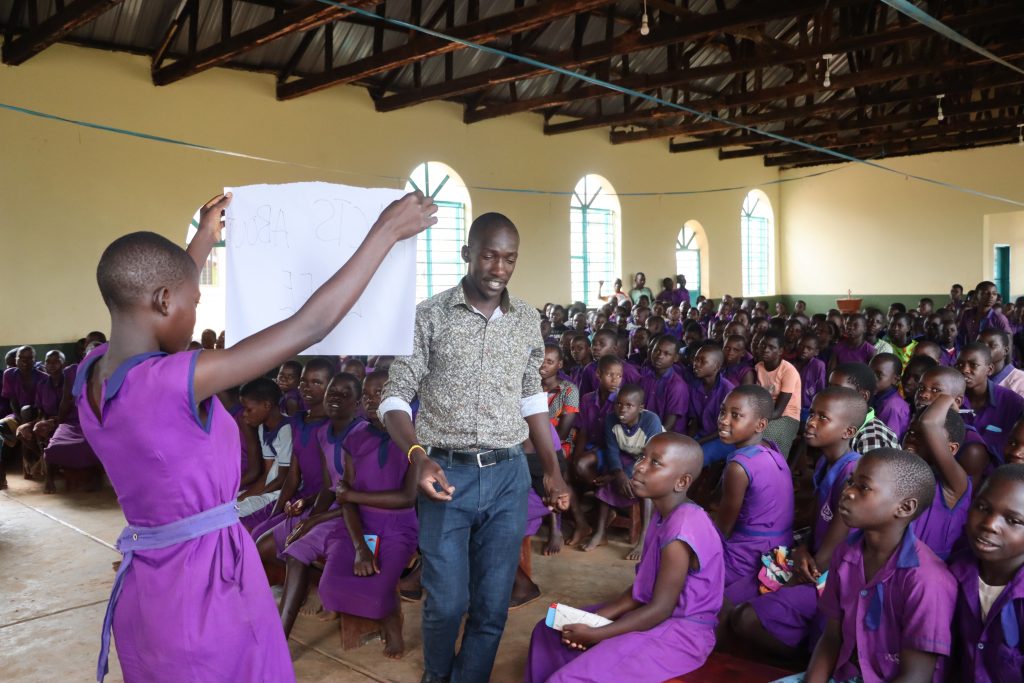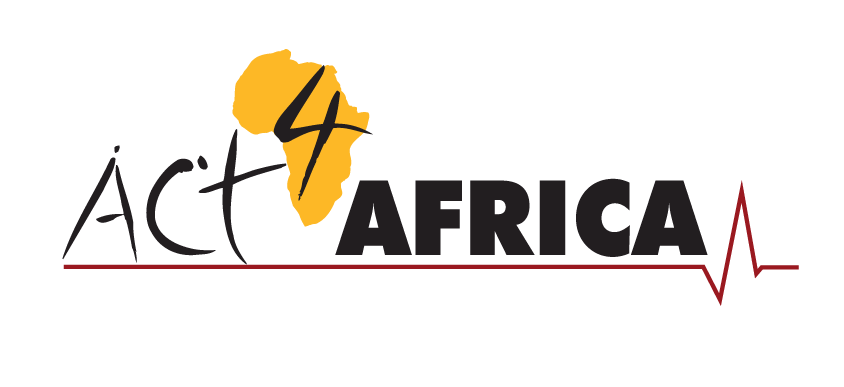
Programmes
CURRENT

The goal is to empower women and girls by providing them with essential skills, fostering entrepreneurship, enhancing health education and building networks that enable full participation in economic practices, leadership, and community life. We aim to improve community support and access to vital health services, creating more equitable and thriving communities. This project is brought to life through several different objectives:
- We offer skills development, vocational training (tailoring, hairdressing, catering) and financial literacy to help women gain employable skills, financial independence, and business acumen.
- We provide startup capital, mentoring, and business development for women-led enterprises, enabling sustainable growth and financial empowerment.
- We develop mentorship programmes with experiences female entrepreneurs and peer networks, fostering knowledge-sharing in business, health, and wellbeing.
- We conduct workshops on leadership, health, decision-making, and stress-management, promoting women’s personal and professional growth.
- We raise awareness on gender equality’s benefits and engage men and boys in supporting women’s empowerment.
- We integrate health services including SRHR, family planning, and mental health support, ensuring comprehensive wellbeing

Based in the Mayuge District, Kathy’s Centre has housed our kindergarten since 2018. We have offered up to 60 children between ages 3-6yrs, early years education. The goal is to provide quality education, increase access to education, support holistic development, promote gender equality, provide health and nutrition support, enhance parental and community involvement, prepare children for primary school, and develop sustainable practices. We aim to break the cycle of gender inequality by supporting children through early education and we aim to support the children of mothers who are engaged in our She Leads programme.

Based in the Mayuge District, this project was started in 2014. The goal has been to support local households. In partnership with the World Food Programme, this project provides households with air-tight silors in which families can safely store crops throughout the year. Each container storers more than 1,000 meals in a safe, secure, insect and rodent free environment, meaning that food spoilage, including fungal contamination, is reduced to a minimum. Households are able to access the food when necessary but can also choose to sell their crops at a time that best suits the market. Each silo lasts approximately 20 years, enabling families to plan ahead, which takes them one step closer to escaping the poverty trap. Families also receive approved training on how to handle and dry crops properly as well as how to use the silos. The programme also provides ongoing support through a network of community mentors with a goal of building sustainable agriculture in the area.

The goal is to reduce maternal death and unintended teenage pregnancies. The primary beneficiaries are young people of 10-24 years of age. The secondary beneficiaries are women of 25-49 years of age. Achievements to date include the following:
- Formed 112 Youth Savings and Loans Associations to empower youths to save, as well as share SRH information. As such, 243 youths have borrowed and started income generating activities, whilst 201 youths accessed SRH services through acquiring SRH loans.
- 100 Senior Women and Men Teachers equipped with ASRHR information to enable them to share age appropriate SRH information with students in school health clubs.
- Formed 50 health clubs as a platform for sharing SRHR Knowledge.
- Over 2,000 young people trained in making re-usable sanitary pads to improve their menstrual hygiene and keep young girls in school.
- Over 10,000 students equipped with ASRH information and life skills to empower them to make decisions about their bodies.
- 26 youths equipped with cottage skills like hair dressing, baking, cookery (snacks like samosas, bagiya, chapatti, daddies and making bar soap).

PREVIOUS

In Uganda, 85% of girls drop out of school early and almost half are married before they reach 18. Our goal was to combat this shocking statistic by sowing the seeds for a healthy and educated life. Donations of £25 a month kept one gifted, talented yet extremely vulnerable girl in school by providing her with a back pack containing uniform, shoes, sanitary towels, and scholastic materials. It also provided annual school fees (assumed commitment 5 years). School fees were paid directly to the school.

As part of our commitment to improving community health and well-being, Act4Africa has proudly run the HCT Community Clinics initiative in Mayuge District.
Through this programme, we have partnered with various health organisations and clinics such as the Kirabo Eye Clinic, Mayuge Health Centre IV, among others, to offer free life-saving services to hundreds of community members who would otherwise have limited or no access to such care.
The services provided under this initiative included:
- HIV Testing and Counselling (HCT)
- Cervical and Breast Cancer Screening
- Eye Check-ups and Distribution of Prescription Glasses
- Other general health education and referrals
These clinics have played a crucial role in filling the health service gaps in the region. Many of the conditions we were screening for are often undiagnosed due to lack of nearby services or prohibitive costs. Our mobile and pop-up clinics enabled residents – particularly women, children, and the elderly – to receive timely diagnoses, information, and where necessary, referrals to treatments.
With hundreds of beneficiaries, this initiative has not only improved individual lives but also strengthened overall community health. The success of the HCT Community Clinics shows the power of partnerships and grassroots outreach in bringing quality healthcare to underserved areas.
We remain committed to finding sustainable ways to continue and expand such vital work, and we are deeply grateful to all our partners who have helped make this possible.

From 2009 until the onset of the global COVID-19 pandemic in 2019, Act4Africa offered bespoke medical elective placements for students, qualified doctors, nurses, and midwives. Building on our health education work since 2000, these placements provided hands-on clinical experience across hospitals in Uganda, Tanzania, and Malawi – with a unique opportunity in Uganda to engage at grass-roots level within rural communities.
Our deep local knowledge and long-standing presence in the region meant that placements were carefully tailored to individual interests and clinical goals. Participants were fully supported by our dedicated local teams, ensuring both a meaningful learning experience and peace of mind throughout their stay.
Elective students were quickly integrated into the daily life of local hospitals and clinics, gaining practical exposure in medical and surgical rotations. Many also took part in community outreach activities, working with local leaders to extend healthcare services to under-resourced villages.
Students enjoyed a final week of cultural exploration – discovering Uganda’s natural beauty and taking a piece of Africa home in their hearts.
Jennifer, a medical student from the University of Sheffield, spent four weeks at Jinja Regional Referral Hospital:
“The placement was a fantastic experience and I learnt a huge amount. It was very different to medicine in the UK, and I saw many diseases that I’m unlikely to come across back home.
One of the best things was the flexibility. Act4Africa gave us the freedom to spend time in the specialties we were most interested in—paediatrics, obstetrics, and general medicine in my case. We also visited rural clinics, a local orphanage, and a charity for street children.
Staying with a local doctor and his housekeeper (who was a fantastic cook!) made us feel truly integrated into the community. I made lifelong friends and was overwhelmed by the warmth and hospitality we received.”
Though the programme has since ended, it remains a cherished chapter in our history, one that both empowered future health professionals and strengthened care in some of the world’s most underserved areas.

From April 2021 until 2023, under the SCCF, Act4Africa started implementation of the adolescent mother’s programme. The aim was to improve the well-being and health of 225 adolescent mothers in the Mayuge District.
Through a structured programme of 24 sessions, 225 these adolescent mothers were provided with well-being (mental health) support, training around sexual and reproductive health, and increased access to government health and social services. Additionally, 75 village health and social workers were trained to understand the importance of mental well-being and 732 household and community members learnt the importance in giving adolescent mothers a voice.
The life-changing training these adolescent mothers received concerned their reproductive health, mental health, and their individual lives. It all worked together to build their confidence and capabilities, allowing them to take charge of their lives. As a result of the work we did, we saw many examples of success such as with Madina, an adolescent mother with a 6 month-old baby, where she gained the confidence to say no to a forced marriage to a stranger.
The sessions with health and social workers were an opportunity for some of them to be freed from the torment they had experienced as individuals. One social worker was able to learn solutions to her son’s bitterness through our sessions. These sessions benefitted them as individuals, but also as adolescent mothers in the communities where they work and have come from.
Community engagements were such an opportunity for households to learn that adolescent mothers are not criminals, outcasts, failures, as they were branded. These stressed that adolescent mothers have the right to live peacefully within their communities without being stigmatised and ridiculed.
Parents and spouses of the adolescent mothers were reminded of their role in ensuring that these young mothers received the support necessary to help them move forward regardless of their circumstances.
The reconciliation between parents and adolescent mothers was one of the greatest highlights form these community engagements.

In Kasese, Western Uganda, this programme ran from 2016 until 2018. It was supported by Global Giving Community Fund and the goal was to improve life chances and livelihoods for 300 adolescent mothers and their children. The Kasese District has an extremely high rate of teenage pregnancy (31%), due in part to rape resulting from cross-border conflict with the Democratic Republic of Congo. It also has a very low rate of girls completing secondary school (2.2% according to the 2002 census). For this programme, 300 adolescent mothers received weekly training from our team in sexual and reproductive health rights, HIV prevention, and life skills training. The outcome resulted in a reduction in adolescent mothers becoming sex workers and engaging in risky sexual behaviour. The mothers became socially and emotionally empowered with improved livelihood opportunities and life chances for themselves and their children. The training offered in financial literature helped shape these young mothers into financially independent individuals, living healthier, more positive lives, better able to tackle poverty-related challenges. As a result, they became less isolated, more confident, and more independent.

From 2010 until 2012, this programme’s goal was to enable the young people in the Mayuge District to take full control of their lives through improves access to sexual and reproductive health services and information. Since completing this programme, young people and the adult community have had better access to antenatal care, increasing the rate of safe live births. They also have better information and care regarding Sexually Transmitted Infections, condom distribution, teenage pregnancy, contraceptive use, and prevention of mother to child transmission of HIV.

Girls who are not in education are at high risk of economic instability and associated poverty and harm. Between 2014 and 2017 in Malawi we ran this programme, which aimed to offer holistic support for 1,500 out-of-school adolescent girls and their communities. It was supported by Souter Trust and Soroptimist International Manchester. As a result of this programme, 1,500 out-of-school adolescent girls and young women, as well as 750 men and women in their communities received HIV-prevention training, business enterprise coaching and life-skills classes. 2 Community Mentors were trained to set up local women’s savings groups in their village. Over 2,000 individuals received reliable, supportive training and education, were engaged in discussions about the gender equality issues they face. Local women’s savings groups successfully begun, assisted by our staff, enabling group saving, loan applications and economic empowerment.

Our H.E.A.L. programme visited Tanzania in 2012-2014. Supported by Eleanor Rathbone Trust plus supporter donations, we aimed to educate young adolescents around HIV prevention and gender equality by providing interactive training sessions for school children aged 9-14 years, discussing HIV prevention, gender equality, and gender respect. As a result, children were equipped with skills to look after their future health and relationships. In addition, two Peer Educators were trained at each participating schools, enabling on-going ‘Life Club’ drama groups to serve as interactive discussion forums for health/gender education and support.

